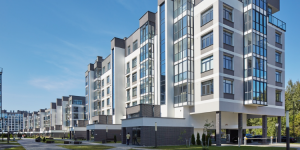
How far can Portugal go to attract foreign capital? After granting generous tax benefits to retired expatriates, the country, mired in a never-ending real estate crisis, is now backsliding. Let's look at how this will attract Portugal's attractivity in the eyes of expats.
End of tax benefits for foreign pensioners
Even good things come to an end. Portuguese Prime Minister Antonio Costa recalls that foreign retirees have enjoyed a lot of benefits in the country. Last Monday, in an interview with CNN Portugal, he pointed out that the tax exemption enjoyed by foreign pensioners no longer makes sense. Hence, the decision to end a system that, in his view, "would be tantamount to prolonging a measure of fiscal injustice that is not justified [...] and would be an alternative way of continuing to hike prices in the housing market".
Flashback to 2008-2009. The Eurozone faced significant impacts from the subprime crisis. Portugal, whose economic model has suffered for more than a decade (barely +1.1% GDP on average between 2001 and 2007), is particularly vulnerable. Debt is soaring: 76.6% in 2009, with a public deficit representing 11.4% of GDP that barely reached 0.2% in the 4th quarter of 2009. In this context, the ruling government introduced a 10-year tax holiday for foreign retirees benefiting from the Non-Habitual Resident (RNH) status. This status, concerning active and retired people, was created in 2009 (the measure became effective in 2012).
The aim was to attract foreign capital. Foreign retirees moving to Spain did not pay income tax. Many foreigners, particularly the French, Italians and British, seized the opportunity to settle down in Portugal.
Tax benefits and real estate crisis
In 2020, the law abolishes the total exemption and opts for a 10% tax rate. However, the formula remains highly advantageous for foreign pensioners, as Portugal is one of the European countries with the highest tax rate: 31.5% in 2022, the 2nd highest rate after Malta (figures: OECD).
Thousands of foreigners have retired to Portugal and helped boost the economy. This is especially true in the regions where most of them have settled, with Lisbon and the seaside resorts of the Algarve leading the way. But this had significant consequences, including gentrification, soaring prices, real estate crisis, etc. According to a study by the Francisco Manuel dos Santos Foundation, property prices in Portugal rose by 78% between 2012 and 2021, while they increased by only 35% in the European Union (EU).
A Golden visa with less benefits
The Golden Visa, for instance, was set up to attract foreign capital and help the country out of the crisis. However, it has been blamed for plunging the country into a never-ending housing crisis in the past few years. The government is also reforming the Golden Visa program. According to the new law, which awaits the signature of Parliament and the government before publication, acquiring a residence through investment will no longer be possible. Until recently, eligible foreigners could obtain this visa with an investment of 280,000 euros or more. However, those who have already invested can still renew their authorization.
More specifically, the law redefines the methods for obtaining residence by investment. There are now 5 methods: creation of at least 10 or more jobs; investment of at least €500,000 in public or private scientific research programs; investment of at least €250,000 in artistic production or heritage preservation; investment of at least €500,000 in organizations recognized by the State; or investment of at least €500,000 in a company with its head office in Portugal that will create at least 5 permanent jobs.
This reform is part of the Housing Act approved by Parliament on July 19. But what does it mean? In February, Portugal announced the end of Golden Visas by saying no to the acquisition of a residence through property investment (which the classic Golden Visa allowed) but yes to investment to support culture and artistic production.
End of tax benefits for more balance?
Will these reforms succeed in calming down local residents? On Saturday, September 30, thousands of local residents took to the streets to demand firm government action against the housing crisis and gentrification. According to them, there is evidence of an even greater crisis in the big cities. Some spoke of a capital transformed into a "city for foreigners", which excludes its inhabitants. Living in Lisbon has become too expensive. Others talk about their rent being multiplied by 20 and their inability to cope. They are forced to leave their homes and their lives and denounce an unbalanced property market. The wealth of foreign pensioners and digital nomads is making prices soar and making life difficult.
Antonio Costa points out that the end of tax benefits for foreign retirees in 2024 is intended to put an end to the real estate bubble. However, other profiles are also affected by the abolition of tax breaks, such as foreigners working in "high added value" sectors (doctors, architects, etc.). Residents, who were expecting decisive action from the government, are now waiting for concrete results.



















